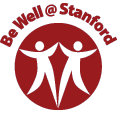Pay attention to hypertension
 May 1, 2014
May 1, 2014
Even though high blood pressure, known medically as hypertension, is easy to detect and treat, many people do not know they have it: hypertension rarely produces physical symptoms. Sandra Tsai, MD, a clinical assistant professor of medicine and cardiovascular medicine at Stanford Hospital and Clinics, elaborates on the issue.
For those unfamiliar with hypertension, how serious is it?
Hypertension is serious. Perhaps most alarming is the fact that many people do not realize they have hypertension because the disorder does not result in traditional symptoms. People can get conditioned to having chronically high blood pressure, which may mean they do not feel any different when their blood pressure is high. There are many serious complications which can result from untreated hypertension — including stroke, heart attack, heart failure, and kidney failure. Hypertension is preventable and treatable; therefore, it is imperative that people know their blood pressure level.
How many Americans have hypertension?
According to the American Heart Association statistics, about 1 in 3 U.S. adults have hypertension, equating to more than 70 million American adults.
What causes it?
Several factors are associated with hypertension, including family history of hypertension, sedentary lifestyle, a diet high in sodium, excess weight, smoking, excessive alcohol use, sleep apnea, and stress. For women, if they had high blood pressure during pregnancy (i.e., preeclampsia) or postpartum, they are also at increased risk for developing hypertension and heart disease.
What should I do if I find my blood pressure is elevated?
You should see your medical provider for further advice on lifestyle changes and the possible need for medication. Lifestyle changes include reducing sodium in the diet and exercising regularly.
If you could change one thing about public awareness of hypertension, what would it be?
I want people to understand the importance of knowing their blood pressure readings and the definition of a normal reading. It is also important for people to know that hypertension often does not produce symptoms. Therefore, we all need to have our blood pressure checked regularly so that if hypertension is occurring, it will be detected early.
There are many things people can do to prevent or alleviate hypertension; thus, if diagnosed, such individuals should talk with their medical provider for help with behavior change and the possible need for anti-hypertensive medication.
Is there a small behavior change you recommend?
Changing and sustaining behavior change is hard. Any help a person can get is useful. I would recommend they ask their loved ones (spouses, parents, friends, and kids) to support them in changing behaviors.
Behaviors to strive for include increasing physical activity to at least a level of 30 minutes daily of moderate-intensity activity, maintaining a healthy weight, smoking cessation, and reducing sodium in the diet.
Free blood pressure screenings are available through the BeWell program.
Interview conducted by Julie Croteau and edited by Lane McKenna Ryan.
Related articles from the BeWell Library
Stanford Health Library: Hypertension resources
Understanding women’s heart disease
Don’t ignore your blood pressure
